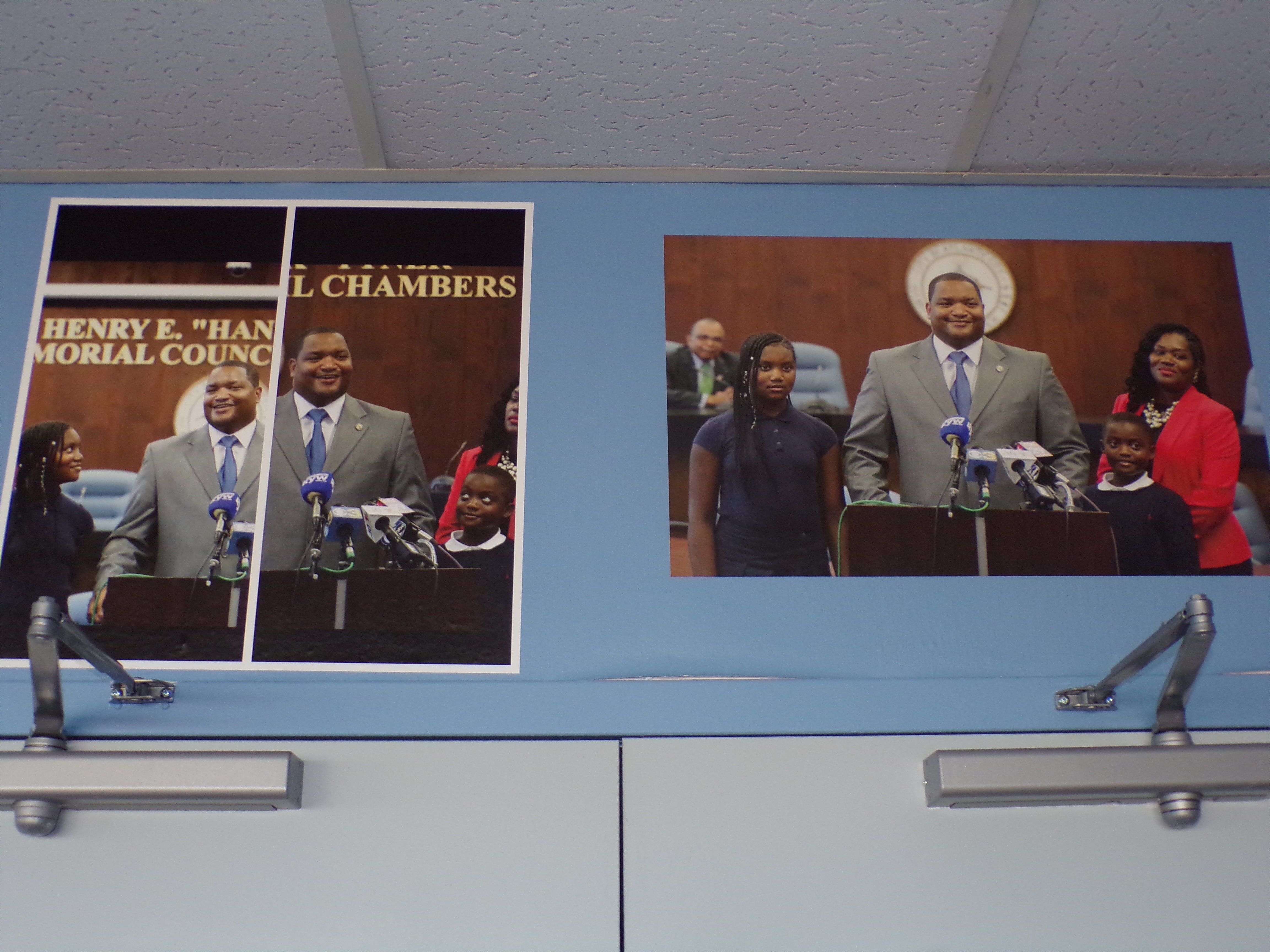Atlantic City Mayor Marty Small: The InsiderNJ Interview
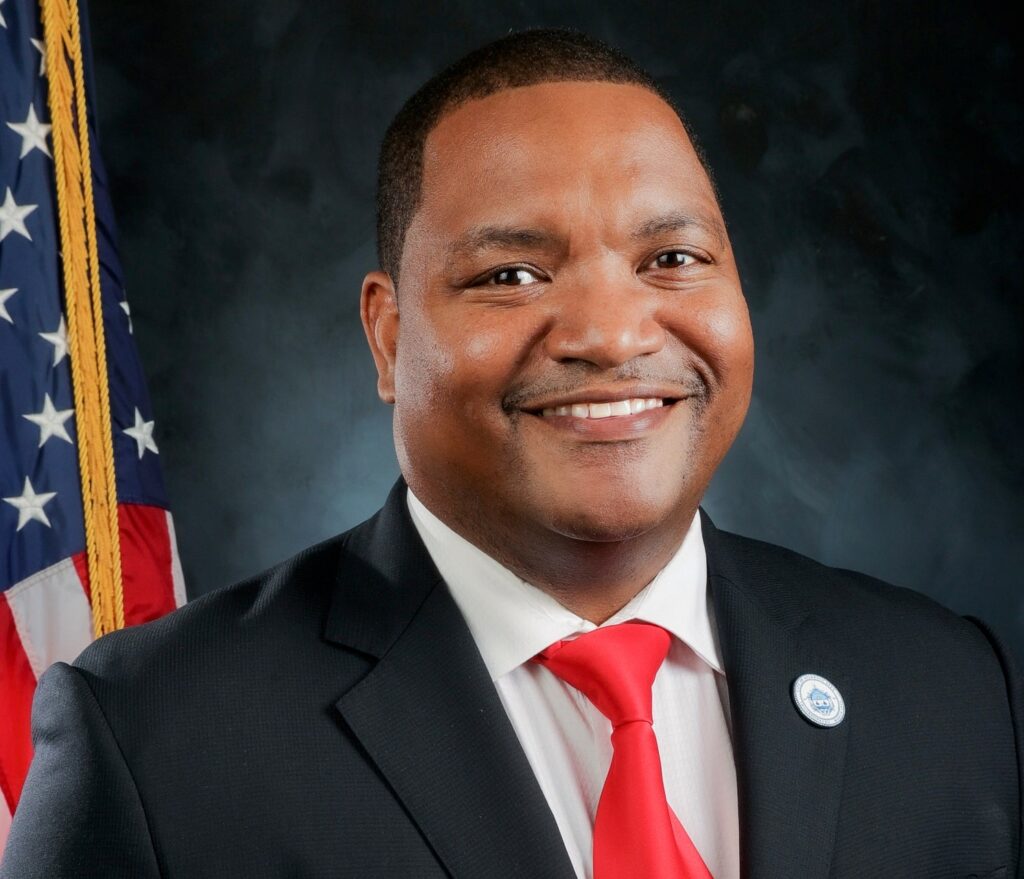
ATLANTIC CITY - Ahead of a scheduled March 31st referendum when voters will assess whether to change city government, Mayor Marty Small said he plans to continue to work to defeat the measure, which would supplant the mayor-council system now in place with five council members and a mayor, who would select a municipal manager to act as the city's executive.
He has a built-in incentive to beat it.
But it's more than a job - his own - he insists.
It's a principle.
"It's going to be a resounding defeat," said Small this weekend, where he agreed to meet with InsiderNJ at City Hall.
"It's offensive," said the mayor, a basketball star from the streets of this city who rose in Atlantic City politics to succeed another mayor busted for stealing basketball league money from local children. A succession of disasters in the maintenance of government here capped by the corruption implosion of Mayor Frank Gilliam last year prompted Atlantic City Residents For Good Government Chairman Bob McDevitt and his allies to move on the referendum question. But Small said McDevitt and former state Senator Ray Lesniak (D-20) - another key proponent of the referendum - are using the imperfections of a basically good system, where Small served on the city council for 16 years, four as council president prior to becoming mayor, to deprive the citizens here of democracy and frontend load their own nefarious agenda.
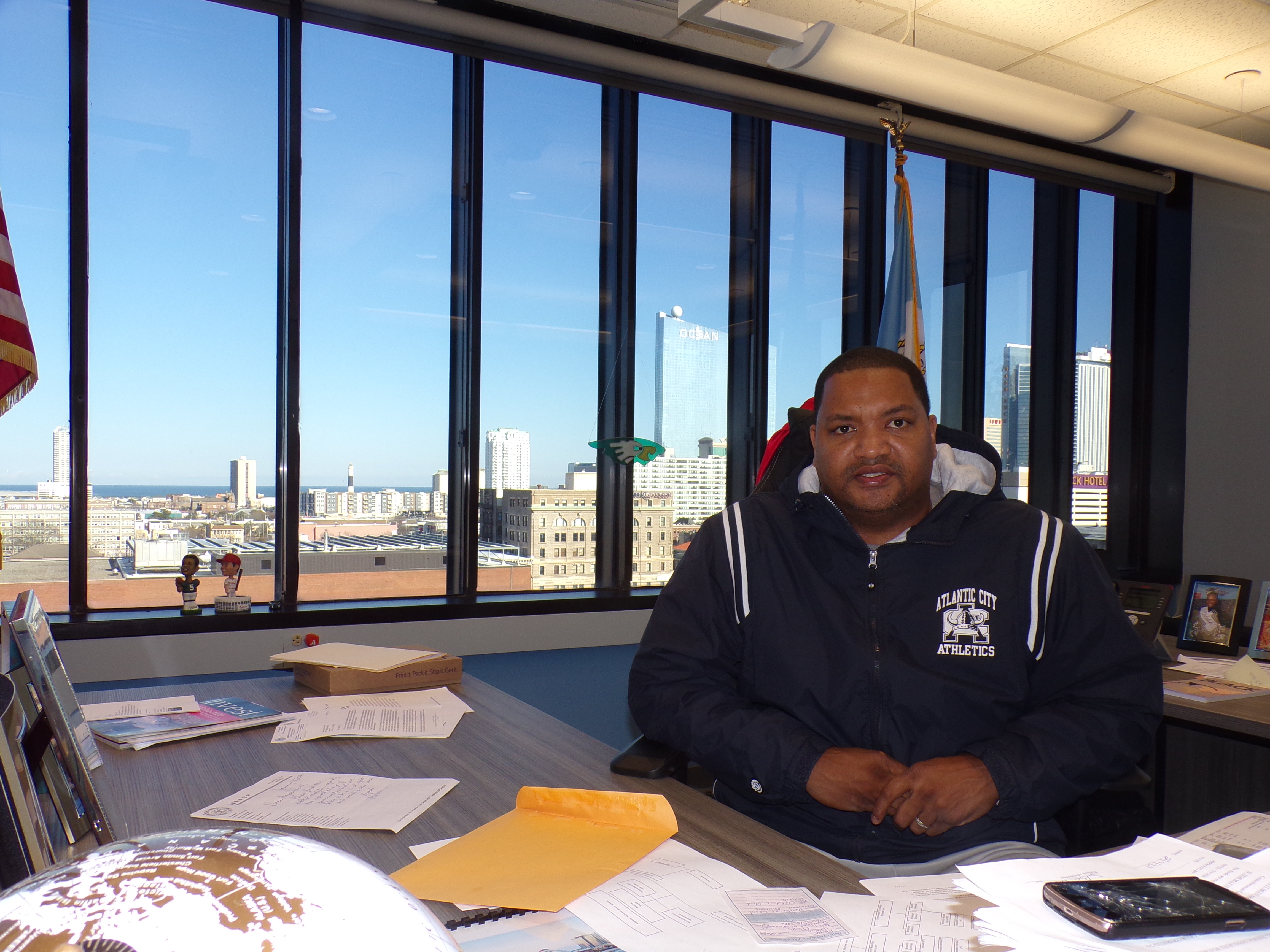
"It's personal to the core when you have someone like Ray Lesniak, a retired North Jersey senator, more concerned about Atlantic City than he is about the affairs of his own backyard," said the mayor, overlooking the city from the seventh floor of City Hall on Bacharach Boulevard. "You have to ask yourself why; not to mention Bob McDevitt's propensity to sell the city out."
The money the Billionaires Resorts Casino owner and Building Trades put up to help finance the referendum could have gone to youth programs, said Small, who himself was shaped by the Boys and Girls Club to become a stand-out power forward at Stockton. "His excuse is he wants to build an indoor water park, but this form of government has participated in building every casino in the City of Atlantic City since 1982. You can't control the people in government, so this is your way to circumvent them. As it stands now, the citizens of Atlantic City have a chance every two years to change government. Yes the vote totals [in the last municipal election] were low, but the people spoke. In this referendum, they want to put five puppets in there who will ultimately be run by a municipal manager who will live 50 miles away. It's troubling on so many levels. It's offensive, and a lot of people in my community think it's racist. People know me. They know that I will always be truthful. It's about what's best for Atlantic City."
The mayor said he will always insist on standing with the people of the city against the casinos if need be. "Why should the casinos get a pilot and the people don't?" he asked. "Every time there's a problem with the industry they want to point to government. But I represent the people first and foremost. Has the government been perfect? No. But we've come a long way."
In an email, Lesniak hit back at the mayor.

"I fought to bring sports betting to Atlantic City which brought it back to economic vitality," said the former senator from Elizabeth. "What has Marty Small done for Atlantic City? Nothing, judging from the response of more than 3000 petition signers to change the culture of corruption in Atlantic City government."
Small said there is not a significant development in Atlantic City in nearly 20 years that he has not been involved in some way, and he's one of the few who can say he never won an election based on absentee ballots. He was better at baseball than basketball in his youth. But he had a passion for basketball - his face still transforms when he talks about it - because of the intensity of the game. The constant action. It prepared him, he said, for what he does now. "My strength is constituent services," Small explained. "I've been at the forefront of stopping the violence in the city. I've been on the frontline of every major thing - not behind the scenes. I was city council president when the state took over. I was the glue that held the city together during the trying times of the former mayor. I stabilized the government."
The kid up against it in the city "is just like me," the mayor said. "I grew up in a house with eight women. The stats were not in my favor. But I took advantage of church activities, the Boys and Girls club. Sports. I made it. You can make it. Look at the adversity I've been through."
His voice hardened.
"I overcame two indictments," Small said, referring to an alleged absentee ballot fraud scheme in 2006, and a related 2005 perjury charge, neither of resulted in conviction. "Two trials. The people of Atlantic City know who I am. They saw right through it, just like those two juries saw through it. I spent a quarter of a million dollars defending myself. But I'm still here. It's a testament to the people who supported me. A quarter of a million for a seat at the time that paid $30K.
"I took a pay cut to become mayor," added Small. who has faced other (eventually dropped) charges, including for drug distribution in 1993. "Clearly I love this city. If I can do it, you can do it, and I want an opportunity to continue, to show what I can do for the people. I'm Atlantic City born and Atlantic City bred and when I die, I'll be Atlantic City dead."
The referendum question is not the only election on the horizon.
Small will face the voters in the June Democratic Primary to secure the seat he obtained when Gilliam went down.
At least one candidate who wants to run against him emerged this past weekend.
But he expects others.
Once he became mayor, his fellow council members dug in against him, he said. "All of a sudden, everyone wanted to be in charge," said the mayor. "The agenda is clearly different. People on the city council are interested in doing others' bidding, and I'm not. Every time this city has been on the brink of disaster, I've been there to save it. I believe in what the great man, Martin Luther King, Jr., said, which is that the measure of a man is where he stands in crisis and controversy."
He also will not have the backing of Craig Callaway and the local Democratic Committee, which originally backed him to supplant Gilliam.
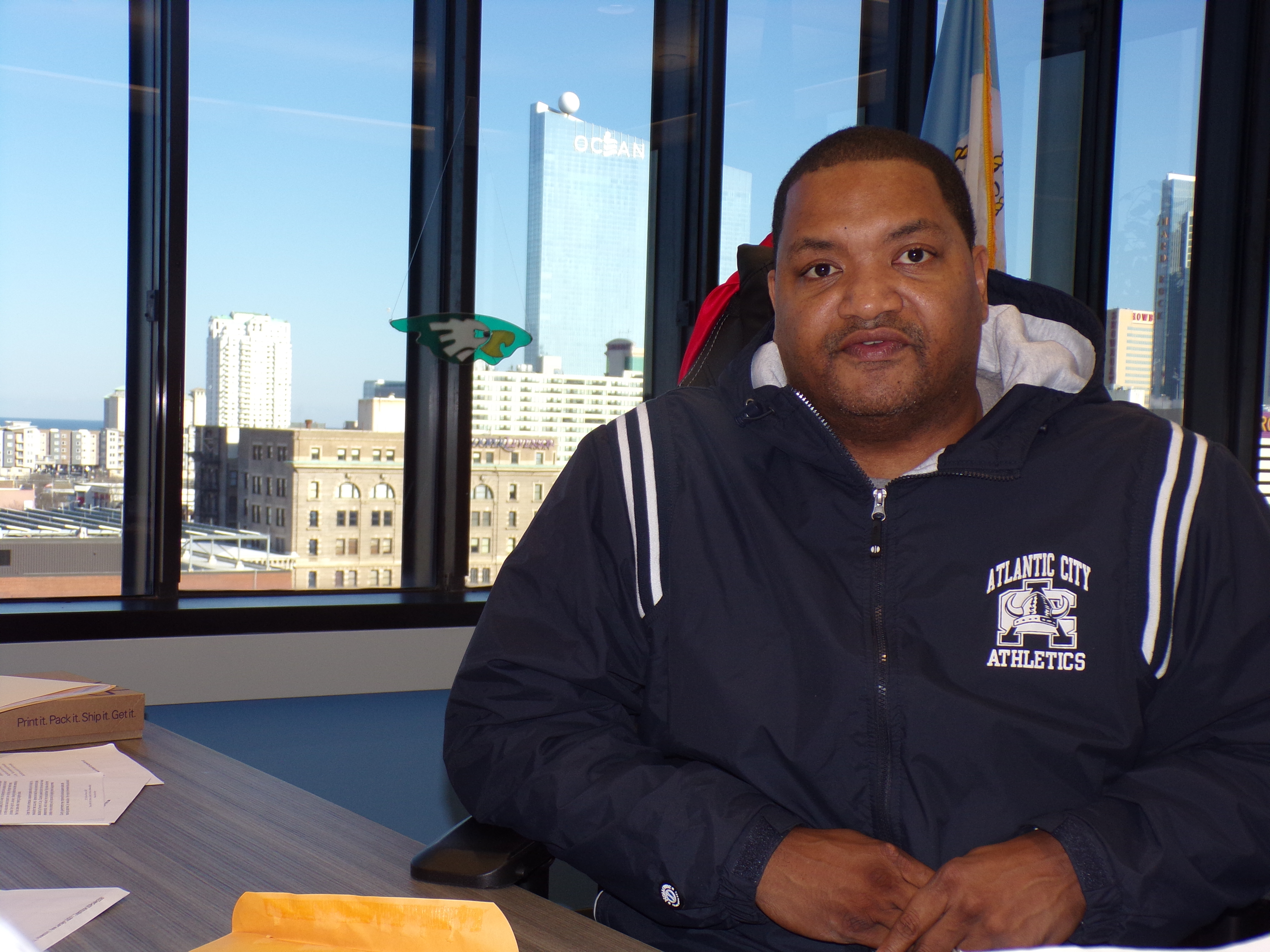
Just as self-interest tied to the casinos motivates the ballot question, in the mayor's view, Small maintains that Callaway nurses similarly selfish local designs. "You have to ask them 'why?' What's the agenda? Why did the Democratic Committee back me and then oppose me?"
Callaway cannot exert the influence and control he craves, Small said.
"A majority are saying I'm doing a good job," he said. "I'm going to do what's best for the City of Atlantic City, not what's best for Craig Callaway or anyone else. I don't know how grown men can march to someone else's drum. I am confident in myself. I won off the line in 2017 but, yes, I was cheated that time.
"You can mark my words," the mayor added, "I won't get cheated this time. And nobody's going to tell me anything to do that I don't want to do. I'm here for the people. When it comes to Callaway. This is someone who is for one mayor, then against the mayor. When does the cycle stop? At the end of the day, I'm a stand up guy. I'm always going to stand up for what's right. I can't be hypocritical. I've been it. But I'm in it for the right reasons.
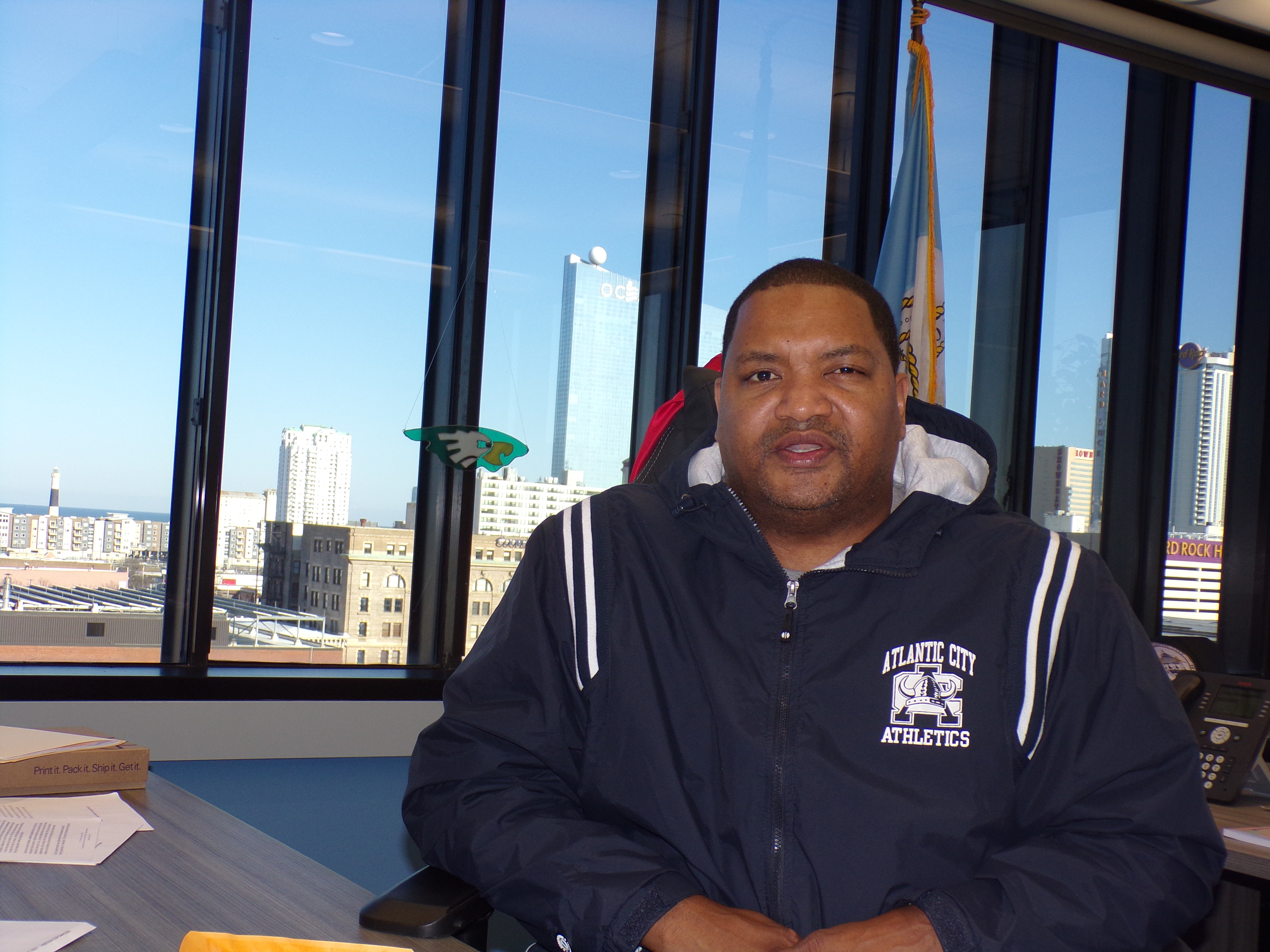
The turmoil of his town, of his own life,prepared him for the job he has now, he argues. "It matches my expectations," he said of the office he assumed last October in the aftermath of Gilliam's meltdown. "We've transitioned better than I thought. Not one day do I look at my desk and say, 'how do I do this?' I came right in and hit the ground running - and I'm just getting started." He keeps Proverbs 3 Verses 5 to 6 close at hand. [5] Trust in the LORD with all thine heart; and lean not unto thine own understanding. [6] In all thy ways acknowledge him, and he shall direct thy paths.
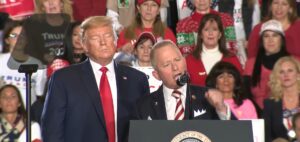
Between the March 31st refrendum and the June 2nd Democratic Primary, Small said he isn't focused on the machinations of Congressional District 2 at the moment, where U.S. Rep. Jeff Van Drew's (R-2) decision to change parties and become a Republican sooner than back the impeachment of President Donald J. Trump sparked a primary battle in Small's backyward.
"With all due respect to any congressional candidate, our focus, our efforts and our energy at this time are on making sure the residents of Atlantic City keep their voice," said the mayor. "We are focused on the March 31st vote. No means no."
Governmentally, he said his focus and energies are on running the the city.
He was happy Trump and Van Drew chose to stage their rally in Wildwood instead of Atlantic City.
"We don't want him here," Small said of the president, the founder of Trump Entertainment Resorts, which did business here.
"He's done enough damage," the mayor added of Trump. "What we want is to tear the Trump Plaza down. Just the other day on the boardwalk, some metal beams were falling from the building. What happens if it hits someone ? It could have hit someone. Someone could have been dead. So he can go to Wildwood, or any other wood, but I wish he wouldn't come back to the City of Atlantic City."
He doesn't have a presidential alternative at this time.
"I was all in with Cory Booker," Small said. "He could've been unique. Unfortunately, he's out of the race. I'm going to support him as senator. Hopefully in the future his time will come, and he'll be back again. But now, my focus is on keeping power in the hands of the people of Atlantic City. I have a tremendous relationship with Governor [Phil] Murphy and his staff. I always thought City Hall could do more for the people, and in the Murphy administration and especially Lieutenant Governor Sheila Oliver, who's the head of DCA [Department of Community Affairs], I couldn't ask for a better partner."
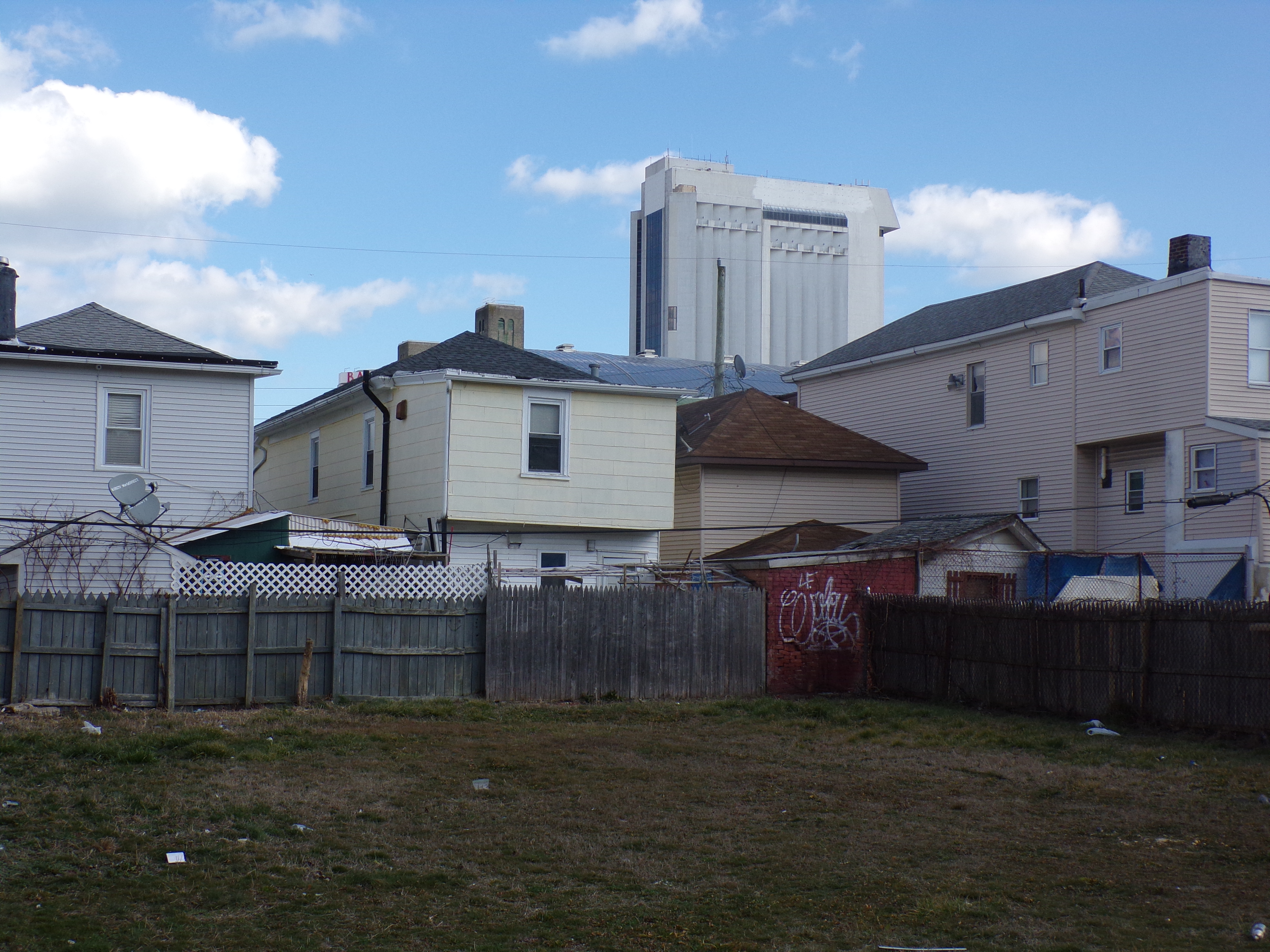
Small said Atlantic City's continuing biggest problem is lack of revenue.
"In 2008, $154.5 million Atlantic City dollars left Atlantic City," the mayor said. "If you came here yesterday, and you stayed at the Tropicana, you paid a parking tax. You paid a hotel tax. If you went to an event and bought an alcoholic beverage, you paid a luxury tax. You bet, that's sports betting. You leave. The residents of Atlantic City didn't get a dime. We need more revenue streams." He supports doubling the 75 cent city limits toll and holding the money in a trust fund account dedicated to local property tax relief. "We are working hard on that," said the mayor.
He was revenue finance chair for four years, during which time the city, he said, delivered three flat budgets and one five and a half percent tax decrease. He wants to oversee an upcoming tax decrease too, as he waits for final ratables to come in from the citywide revaluation.
He's dedicated $1.5 million to tear down eyesore properties, has overseen bulkhead repair in lower Chelsea, wants to step up code enforcement, replace 20 streets in 2020; and prioritize public safety and cleanliness, and the needs of children and senior citizens. "We wanted to change the climate and culture in City Hall, and we made some changes to the building," Small said. "We made it more inviting. We did little things to show people we appreciate them. And even to the way we answer the phone. A leader shows the way, knows the way and goes the way. Now when you call, you get, 'It's a great day here in the City of Atlantic City.' We're off to a good start and we have gotten good feedback from the residents."
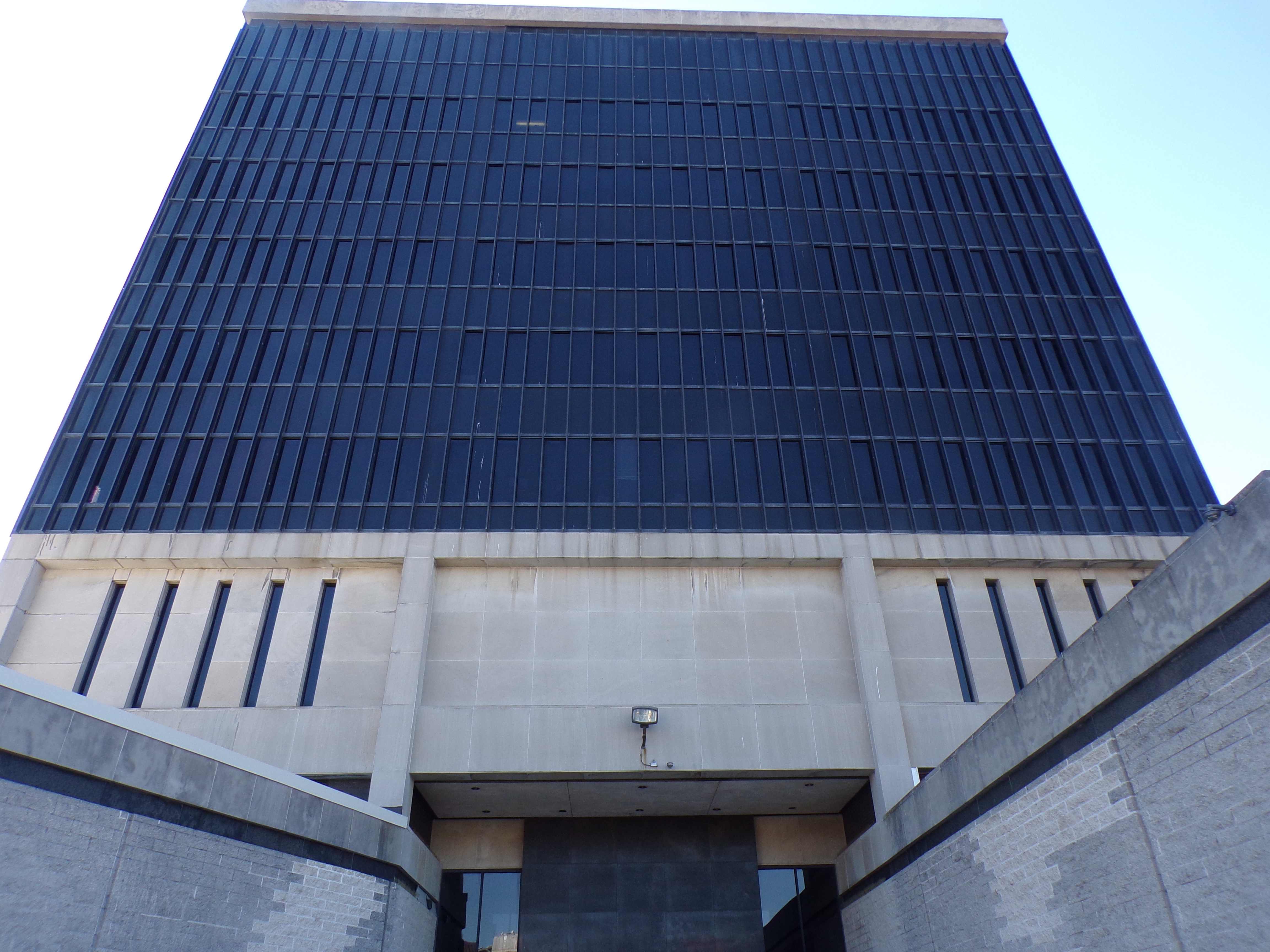
The city stretches to the casinos and to the sea.
Only City Hall - or so it seems from here - rises over the two stories and walk-ups and public housing
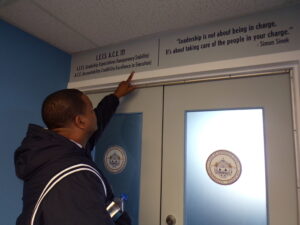
projects with any kind of contravening authority to the pleasure domes and glass uprises on the boardwalk and on the bay. There's seldom a ramshackle frame of residential housing where you can't see the jut of casino rising to east or to northwestward. The crunch of cultures (or reconfirmation of dysfunctional symbiosis and stasis) persistently occupies the eye.
How does Small intend to avoid the entrapment that ensnared and took down Gilliam, or the paranoia that overran others: the hospital room in some cases, too soon, if not the jail house?
How will he - the kid shaped by sports but himself the product of government and the close proximity of other longtime occupants of the same winter-frigid clime - buck corruption in this would-be sensual, poverty-stricken jam-up that itself looks like the bulldozed leftovers of earthly delights run amok?
On the wall over the door to his office, so that he sees it every time he walks out of the room, Small has affixed pictures of his son and daughter looking up at him with pride and trust on the day he assumed the oath of office.
"That's what it's about," the mayor said, pointing.
And, he added forcefully, "The lord is my shepherd. I shall not want."
